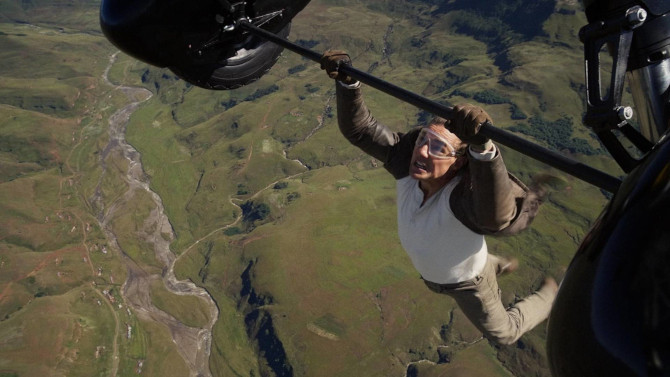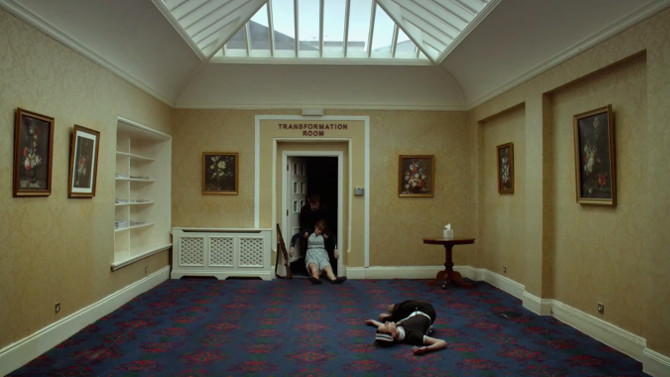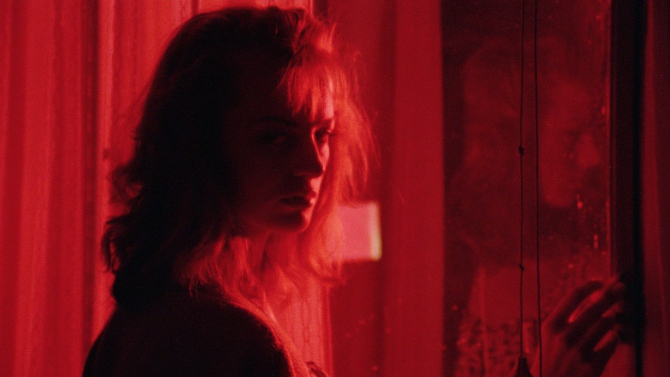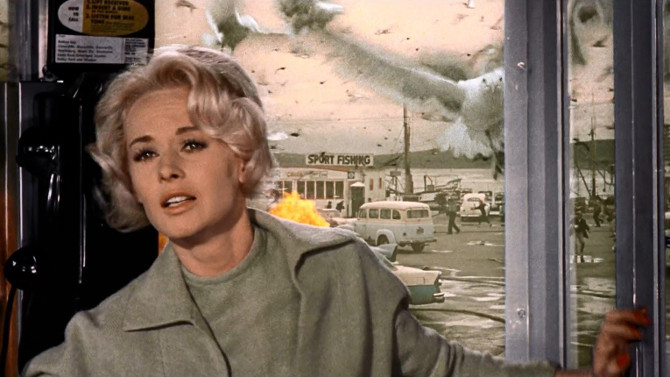
An Impossible Mission
How do you wrap up a franchise like Mission: Impossible? That is, if this even is the final installment... as they’ve made it sound (while at the same time, stars not named ‘Tom Cruise’ pipe up and suggest that might not be so). It has been twenty-nine years, with different writers and visionary directors – from twisty Brian De Palma and the action hair stylings of John Woo, to the lens flares of J.J. Abrams and animation expert Brad Bird, it was only about ten years ago that the franchise decided to opt for The Usual Suspects scribe Christopher McQuarrie for the final four. To return to that opening question once more, you could end with a Sopranos’ style cliffhanger, simply make another entertaining movie like the many before – like Everybody Loves Raymond did it with its final episode, or try to tie everything up in a neat little bow by bringing everything together as the Daniel Craig era did with James Bond. Well, it is definitely more along the lines of the latter example, with some distinct differences.
-

Lobster Trap
The LobsterMay 31, 2020For whatever reason, people are obsessed with love and relationships – celebrity couples, The Bachelor (and its female counterpart), Rock of Love, Love Island. . . the list goes on and on. Then there are those nosey questions from family members – ‘Any prospective dates?’, ‘Are you seeing anyone special?’, ‘What happened to that nice girl you were dating last year?’, ‘When are you going to get married?’. . . as if you can’t be happy unless you are paired with someone. Based on this assumption, Yorgos Lanthimos creates a most fascinating vision of this very world of love and relationships with his 2015 film The Lobster. An absurdist dystopic vision set in a rather similar world to today, Lanthimos (along with his writing partner Efthimis Filippou) set out very strict rules for this alternate reality. In a landscape where everyone must be paired together, those who lose a partner (either to death or separation), are sent to a high end resort – where they have only forty-five days to find a suitable partner to continue their lives. If, for whatever reason, they cannot find someone, they are turned into an animal of their choosing (bonus!).
-

Pyjama Parting
The Pyjama Girl CaseMay 26, 2020You know you’re in for a giallo when the word is literally in the Italian title. . . La Ragazza Dal Pigiama Giallo, simplified in English by being called The Pyjama Girl Case (1978), the word giallo, if you recall, is in reference to the garish yellow used on the covers of many of the books writers pulled from to create the films’ narratives – in this case, it is referencing the distinctive colour of the pyjamas the murdered girl was wearing when found. Written and directed by Flavio Mogherini, and based on a real case (the unsolved murder of Linda Agostini in 1934), this is a very rare giallo set in Australia, Sydney to be specific. A narrative about foreignness, nearly everyone in this Down Under landscape is an immigrant searching for a better life (though, as you will see, this isn’t always the outcome).
-

What Could Have Been: Hell Riders
May 22, 2020Do you know what you get when you cross Tina Louise and Adam West? For anyone who said Ginger Batman, you would be completely wrong. You’ve actually somehow found your way to the 1984, below B exploitation action movie Hell Riders, directed by James Bryan. An entertainingly bad western-style action movie missing any of the class of a Billy Jack (and a film like that didn’t have a ton of class), the narrative follows traveller Claire Delaney (Tina Louise), a woman who is having a rather difficult time with her clunker of an automobile.
-

What Could Have Been: The Rhythm Section
May 19, 2020When you see the names Michael G. Wilson and Barbara Broccoli, you almost inevitably know that you are in for a James Bond film. The two longtime producers of the franchise (and children of original mastermind Albert R. “Cubby” Broccoli), have been working on these projects since the Timothy Dalton era. With closure now coming to the Daniel Craig era – his final Bond feature, No Time to Die, is slated for a November release, and talk has turned to who will be next to play the super spy. Ranging from Tom Hardy and Tom Hiddleston, to excited chants for Idris Elba to become the first black Bond, there have even been some people saying that it is the right time for the first female Bond. Dividing fans, purists (like myself) are not overly fond of the idea, while some ‘perhaps’ more modern leaning viewers love the idea.
-

Top 25 Films of the Decade: 2010s
May 15, 2020I’ve been sitting on this ‘25 Films of the Decade’ list since the New Year. . . tinkering with it (crossing this one off and adding that one) – but, if I wait any longer, I’ll find myself in need of creating a new list for another decade. So, without further ado, here is this long awaited list (that no one even knew was coming). . . with a short description as to why each film made the cut.
-

For the Birds
The BirdsMay 12, 2020Alfred Hitchcock was always looking for a good challenge – a way to test the boundaries of film, as well as wow his audiences. In 1944, he built a gripping thriller set in the smallest of locations. . . on a Lifeboat. Four years later he challenged himself to shoot murder mystery Rope (again in one location) to look like a single continuous take – due to limitations of the time, it was actually done in ten lengthy takes. In 1954, he tried his hand at 3D. . . though many think of this as a modern day thing, Dial M for Murder fits right within this kitschy novelty’s golden age (1952-54). Then, to get past censors, he reverted to black and white for 1960's Psycho. Yet one of his biggest challenges came with 1963's The Birds (a story loosely based upon Daphne du Maurier’s novel of the same name) – not simply because it would be a complicated film to make, but because it was made without any music (actually, it was his longtime musical collaborator Bernard Herrmann who suggested this). After lengthy years of working under the Motion Picture Production Code (aka, the Hays Code), its grip was finally starting to waver – though it would last until 1968, Hitchcock finally had a little more freedom to amp up the edginess.
